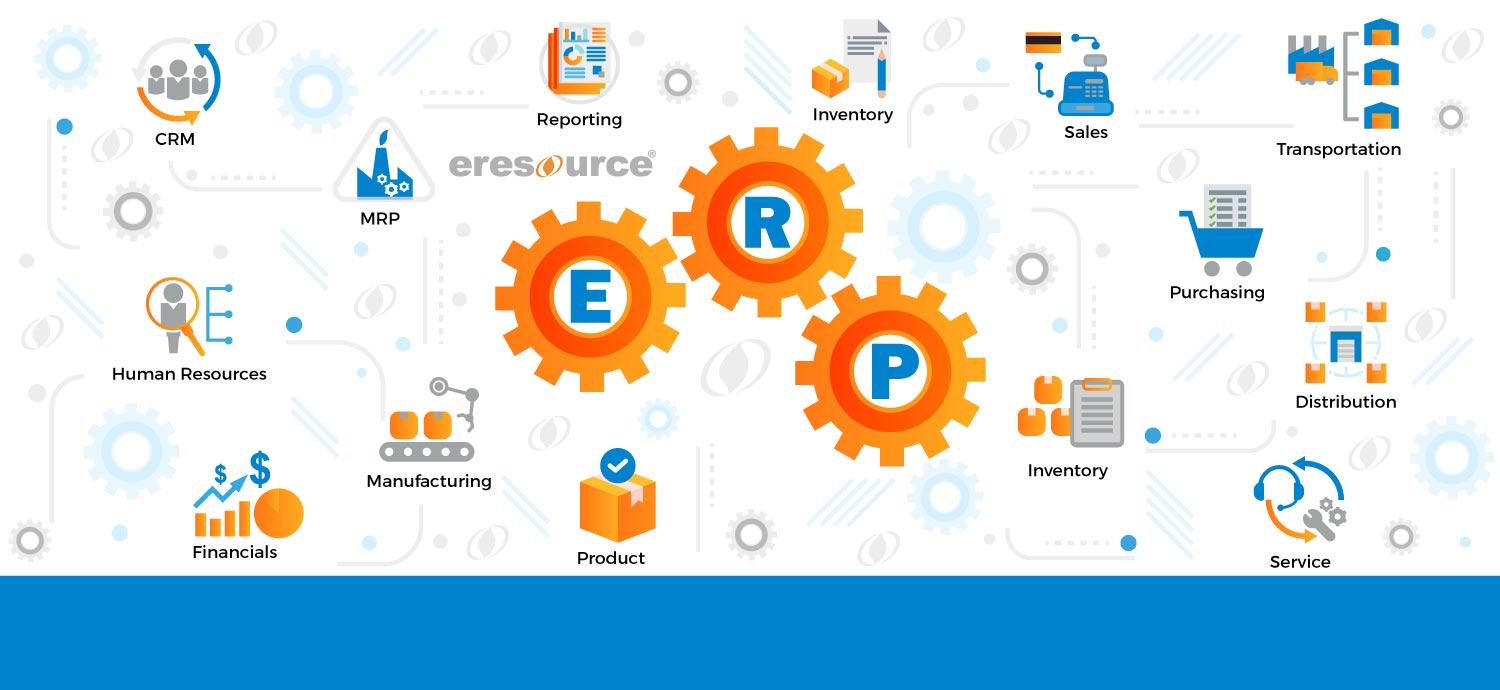The manufacturing industry has witnessed a radical transformation in its operations in the past few years. A considerable percentage of manufacturing units have adopted technology to fulfill their various requirements. Moreover, smooth information flow is vital in increasing production efficiency. An increasing number of manufacturers are investing in premium software to bring in automation, streamline operations, and improve employee collaboration.
It is when ERP for manufacturing comes into the picture. ERP software is typically a suite of applications that helps automate and manage the entire manufacturing operations- from procurement of raw material and production planning to supply chain management and increasing productivity and revenue.
In this article, we’ve discussed the best benefits of using ERP for manufacturing industry.
- Smooth Workflow
A smooth workflow is key to efficient businesses, especially for manufacturing companies. Poor workflow can result in a delay in delivering orders, lost customers, and more.
Automating the workload will help manufacturers to eliminate repetitive, time-consuming, and complicated tasks, ensuring smooth and reliable workflows. Moreover, automation reduces manual intervention, giving them enough time to focus on other critical tasks, thereby elevating their work productivity.
Furthermore, the ERP system facilitates manufacturers to plan, implement, and control production, as well as integrate these operations with other business processes.
- Better Customer Service
The production planning module in ERP is known for streamlining the entire process of procuring raw material and converting it into the final product. Moreover, installation of the ERP software can help schedule and optimize the production cycle, ensuring the timely delivery of final products without compromising on quality. And delivering products on time plays a vital role in satisfying customers and maintaining long-term relationships.
- Inventory Control and Management
Managing and controlling inventory is another critical aspect of manufacturing units. It helps maintain enough stock to meet customer demand while avoiding overstocking and reducing the cost and risk of holding extra inventory.
An ERP in manufacturing industry will continuously update the status of the material in real-time and place orders automatically to replenish the stock. In addition, this software uses a Just-In-Time scheduling strategy to ensure replenishing the stock when required. It further eliminates the need to hold vast quantities of work-in-progress inventory.
- Improving the Equipment
Regular maintenance and equipment cleaning is vital to ensure its smooth functioning and avoid any unexpected breakdowns. However, in reality, servicing is often put off or delayed, which causes damages or sudden breakdown of machines, resulting in lost productivity.
ERP in production planning helps schedule regular maintenance and service and ensures timely cleaning. It prevents breakdowns and significant repairs while keeping machinery in better shape to meet target outputs.
- Increasing Employee Morale
A chaotic workflow can contribute to employees’ stress which can further cause significant accidents during the production process. However, this situation can be prevented with a systematic and smooth workflow.
Stress can cause mental and physical fatigue, producing defective products on the shop floor. Effective ERP software can help reduce stress and increase employee morale. That being said, this system can foster improved collaboration, helping employees across different departments to meet their deadlines in an organized and efficient manner.
- Reduces Idle Time
Regarding manufacturing, idle time is when workers get paid, despite workers or machinery being unproductive. It means that the company is incurring expenses without earning corresponding returns. It can be caused due to several problems, like shortage of raw materials, power outages, machine repairs, etc.
However, manufacturing units can avoid this unproductive situation by installing manufacturing erp software. This system can minimize downtime or idle time by scheduling timely inventory replenishment, machine maintenance, etc.
ERP software will coordinate with the procurement department to ensure that raw materials are released on time, production continues without disruption, and finished goods are delivered on schedule.
- Improved Delivery Performance
High-quality control is crucial in manufacturing to provide defect-free, high-quality products to customers. The ERP in production planning enables the procurement of quality raw materials and the optimization of resources. It will further ensure that the delivery of final products to the customers is not compromised.
Conclusion
ERP has become a must-have for all manufacturing enterprises worldwide in this technologically advanced era. This system is a highly effective way to streamline the production planning process, thus boosting performance, productivity, and revenue. Therefore, get an effective, customizable, and flexible ERP software for production planning to witness significant growth in your manufacturing unit’s overall productivity.
Categories
Register for Free Demo!
Recent Post
-

eresource ERP 360 - an
11th Apr 2019 -

A competitive ERP system for
17th Apr 2019 -

Auto components manufacturing industry has
17th Apr 2019 -

Make the best use of
17th Apr 2019






